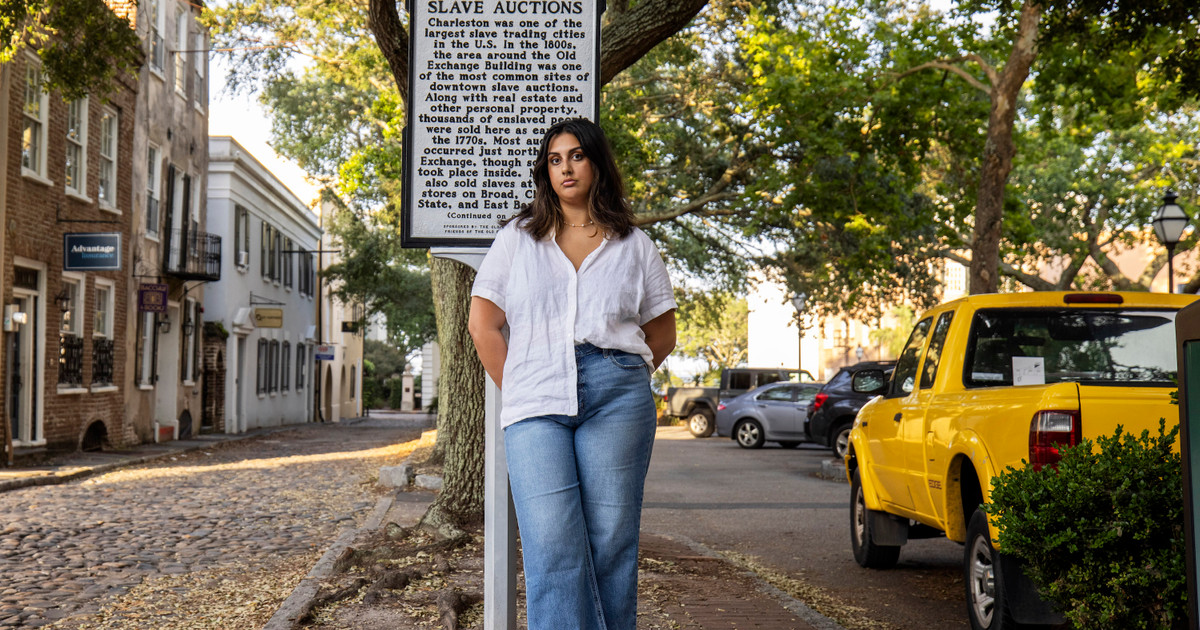Man was slave in 1960s, lawyers say
By Matt O'Connor and Tribune staff reporter
Chicago Tribune
•
Jun 10, 2003 at 12:00 am
Lawyers seeking reparations for African-American descendants of slaves say they have located a 104-year-old man in rural Louisiana who says that he and his children were enslaved throughout much of the 20th Century and even during the civil rights movement of the 1960s.
The lawyers say the discovery could give their lawsuit critical, firsthand evidence of slavery in America, but a federal judge in Chicago rebuffed their request on Monday for immediate approval to take a deposition from the man to ensure his account doesn't die with him.
With the lawyers refusing to identify the man and providing sketchy details of his life, many questions remained about how he and his family were held in servitude a century after slavery had been abolished.
But one lawyer, Diane Sammons of New Jersey, suggested the family was afraid to break away from the slave masters because of repeated rapes and other physical abuses.
Lionel Jean-Baptiste, an Evanston attorney who is playing a key role in the lawsuit, said the man is concerned that his testimony in the case could endanger his and his family's safety.
Saying the man has the "normal infirmities" of someone more than a century old, the lawyers sought approval to immediately take his deposition to preserve his testimony in case he died.
But U.S. District Judge Charles Norgle Sr. refused, putting off a decision until after the plaintiffs file a consolidated complaint. The judge gave them another week to file the complaint, not until August as the lawyers sought.
In sometimes testy exchanges with the judge, Edward Fagan, another lawyer for the slave descendants, repeatedly asked the judge to decide the deposition issue, even if it was an adverse ruling, so they could appeal to a higher court if necessary.
Proposed class-action lawsuits seeking reparations for millions of African-American slave descendants were filed last year in federal courts in Chicago, New York, New Jersey, Louisiana, Texas and California, alleging business and industry illicitly profited from slavery. The cases were consolidated here in front of Norgle.
Lawyers for the slave descendants have also taken issue with Norgle for not yet ordering the defendant businesses to preserve historical records that they say might document the firms' connections to the slave trade.
Lawyers said an independent historian, described as a genealogist, had discovered the 104-year-old former slave. After multiple visits with him over one to two weeks, lawyers in the lawsuit were able to put together a statement on the man's behalf. They asked Norgle to keep it sealed indefinitely.
"We believe he's credible," Fagan said.
The lawyers said the man was uneducated and worked as a slave primarily in cotton fields in rural Mississippi before he was forced to move to Louisiana with his master in the late 1930s.
The man wasn't paid for his labor and lived in squalid conditions, and his children were also forced to work at cotton and sugar cane farms from young ages, the lawyers said.
According to court papers, the man and his family suffered "rape, torture, kidnapping and horrific abuses at the hands of the slave masters," and he still fears retribution if he goes public with his story.
The lawyers contend he and his children were enslaved into the 1960s--fully a century after the Emancipation Proclamation freed slaves.
Even the Chicago lawsuit noted in its opening line that slavery ended in 1865.
Yet on Monday the lawyers said they didn't think the family's story was unique for certain rural areas of the South.
According to court papers, the NAACP received letters in the 1920s and 1930s from African-Americans claiming to be held in servitude on plantations. And as late as 1954, the Justice Department prosecuted Alabama brothers for forcing blacks to work as slaves, the suit said.
By Matt O'Connor and Tribune staff reporter
Chicago Tribune
•
Jun 10, 2003 at 12:00 am
Lawyers seeking reparations for African-American descendants of slaves say they have located a 104-year-old man in rural Louisiana who says that he and his children were enslaved throughout much of the 20th Century and even during the civil rights movement of the 1960s.
The lawyers say the discovery could give their lawsuit critical, firsthand evidence of slavery in America, but a federal judge in Chicago rebuffed their request on Monday for immediate approval to take a deposition from the man to ensure his account doesn't die with him.
With the lawyers refusing to identify the man and providing sketchy details of his life, many questions remained about how he and his family were held in servitude a century after slavery had been abolished.
But one lawyer, Diane Sammons of New Jersey, suggested the family was afraid to break away from the slave masters because of repeated rapes and other physical abuses.
Lionel Jean-Baptiste, an Evanston attorney who is playing a key role in the lawsuit, said the man is concerned that his testimony in the case could endanger his and his family's safety.
Saying the man has the "normal infirmities" of someone more than a century old, the lawyers sought approval to immediately take his deposition to preserve his testimony in case he died.
But U.S. District Judge Charles Norgle Sr. refused, putting off a decision until after the plaintiffs file a consolidated complaint. The judge gave them another week to file the complaint, not until August as the lawyers sought.
In sometimes testy exchanges with the judge, Edward Fagan, another lawyer for the slave descendants, repeatedly asked the judge to decide the deposition issue, even if it was an adverse ruling, so they could appeal to a higher court if necessary.
Proposed class-action lawsuits seeking reparations for millions of African-American slave descendants were filed last year in federal courts in Chicago, New York, New Jersey, Louisiana, Texas and California, alleging business and industry illicitly profited from slavery. The cases were consolidated here in front of Norgle.
Lawyers for the slave descendants have also taken issue with Norgle for not yet ordering the defendant businesses to preserve historical records that they say might document the firms' connections to the slave trade.
Lawyers said an independent historian, described as a genealogist, had discovered the 104-year-old former slave. After multiple visits with him over one to two weeks, lawyers in the lawsuit were able to put together a statement on the man's behalf. They asked Norgle to keep it sealed indefinitely.
"We believe he's credible," Fagan said.
The lawyers said the man was uneducated and worked as a slave primarily in cotton fields in rural Mississippi before he was forced to move to Louisiana with his master in the late 1930s.
The man wasn't paid for his labor and lived in squalid conditions, and his children were also forced to work at cotton and sugar cane farms from young ages, the lawyers said.
According to court papers, the man and his family suffered "rape, torture, kidnapping and horrific abuses at the hands of the slave masters," and he still fears retribution if he goes public with his story.
The lawyers contend he and his children were enslaved into the 1960s--fully a century after the Emancipation Proclamation freed slaves.
Even the Chicago lawsuit noted in its opening line that slavery ended in 1865.
Yet on Monday the lawyers said they didn't think the family's story was unique for certain rural areas of the South.
According to court papers, the NAACP received letters in the 1920s and 1930s from African-Americans claiming to be held in servitude on plantations. And as late as 1954, the Justice Department prosecuted Alabama brothers for forcing blacks to work as slaves, the suit said.
 .......you were being facetious?
.......you were being facetious?




